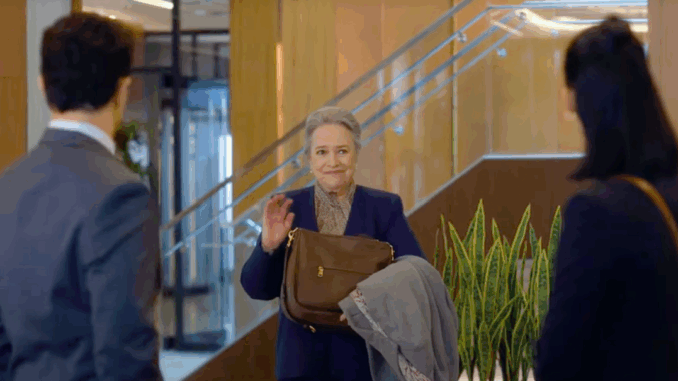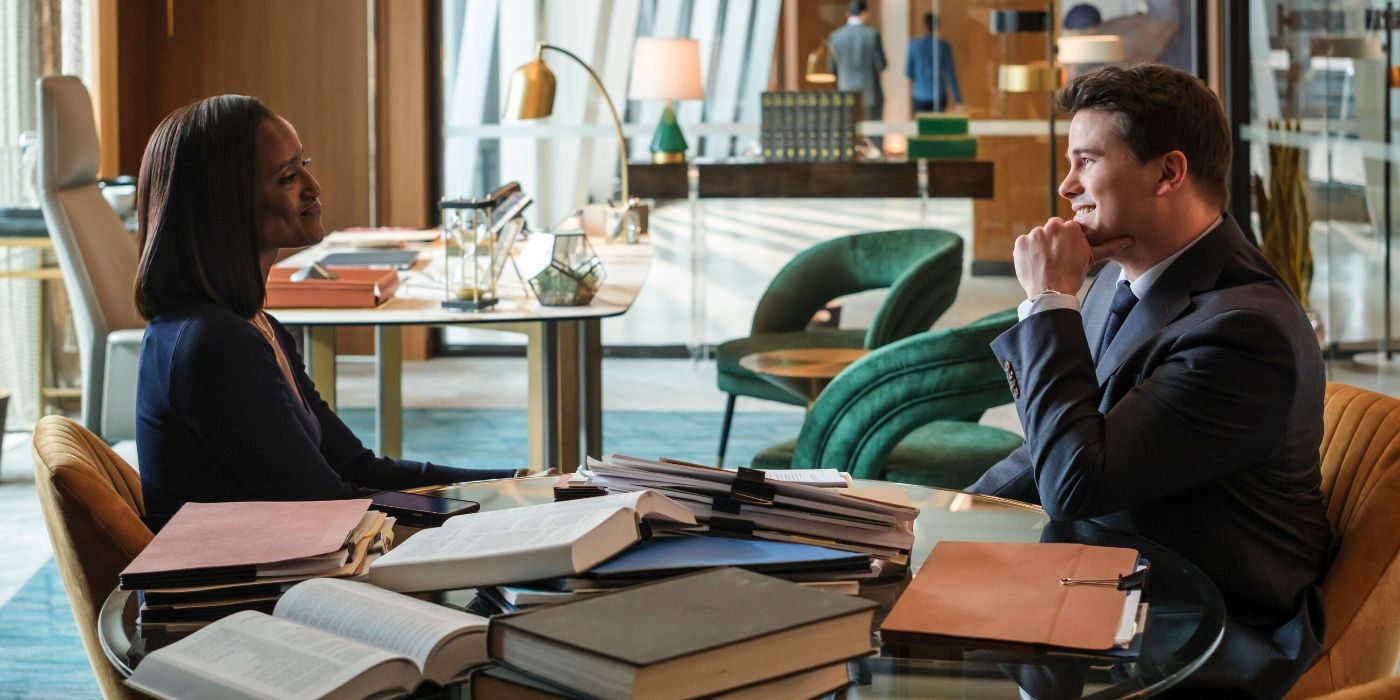
The courtroom might be clean — but the law firm is filthy. Inside a reboot that’s less about justice and more about survival.
When audiences tuned in for CBS’ reboot of Matlock, some expected a familiar comfort: quirky cases, warm humor, and a silver-haired genius solving mysteries with Southern charm. What they got instead was a psychological chess game set inside a gleaming corporate fortress — one where alliances shift, secrets bubble beneath every polished conference table, and winning doesn’t always look like justice.
The reboot doesn’t just reimagine the lead character — it reconstructs the world around her. Gone is the local courtroom, replaced by a high-stakes legal firm in Manhattan. Cases still get solved, yes, but they’re threads in a much darker tapestry: whistleblowers buried, files doctored, power leveraged like currency.
At the heart of it all? Madeline Matlock — not a homespun lawyer from Atlanta, but a retired judge played with chilling subtlety by Kathy Bates. She’s stepped out of retirement not to defend clients, but to tear down a legal empire from within.
The Slow-Burn Suspense of Corporate Crime
What makes Matlock so compelling isn’t what it shows — it’s what it hides.
Each episode peels back a layer of the firm Jacobson Moore, revealing the rot behind its prestige. There’s no villain of the week here. Instead, there’s a quiet sense that everyone — from the junior associates to the managing partners — is hiding something.
“There’s a language to how these characters lie,” said co-star Skye P. Marshall. “They don’t shout or threaten. They deflect. They play polite. That’s scarier, honestly.”
In one storyline, an internal investigation disappears overnight. In another, a suspicious suicide may be tied to a memo that never made it to court. And then there’s the subplot no one will confirm but everyone senses: what exactly was Madeline doing as a judge that led her to this firm — and why now?
Each episode feels like a move in a larger, more dangerous game.
A Cast Built for Secrets
The cast of Matlock is deliberately curated — a mix of rising talent and seasoned performers, each with characters just barely on the edge of revelation.
David Del Rio’s Billy is charismatic and loyal — but might be covering up his own legal indiscretions. Olympia, played with taut vulnerability by Skye P. Marshall, is torn between ambition and her growing suspicion that her firm is silencing the truth. And Jason Ritter’s Julian is the smooth-talking partner whose smile always lasts just a second too long.
What binds them all is Matlock — not because she’s their boss, but because she’s always watching. Bates plays her with the quiet menace of someone who has already calculated every move.
“Sometimes she’ll pause mid-sentence,” said director Kat Candler. “And that pause? It’s a threat. You don’t even know it until five scenes later.”
A Narrative That Refuses to Rush
Matlock is patient. It resists the network-TV temptation to resolve every thread neatly by episode’s end. Storylines stretch and tangle. Characters make choices that come back to haunt them six episodes later. The show trusts the audience to connect the dots — and punishes those who don’t pay attention.
This slow-burn structure was intentional, said showrunner Jennie Snyder Urman. “We wanted to tell a story about institutional rot — and that takes time. Corruption doesn’t reveal itself in one episode. It seeps in. It lingers.”
That pacing, combined with the show’s cool, modern cinematography and jazzy, noir-inspired score, gives Matlock a tone that’s more Mr. Robot than NCIS. And that’s exactly the point.
“We didn’t want to just do another courtroom show,” Urman added. “We wanted to ask: what if the real crime was the system itself?”
The Matlock Mystique: Who Is She Really?
By season’s end, viewers have learned more about the firm than about Madeline Matlock herself — and that’s by design. She’s a mystery. There are hints at a painful loss, a professional betrayal, maybe even something more sinister. She doesn’t confide, she manipulates. And yet, you root for her.

“She’s not warm,” Bates admits. “But she’s honest. And I think people are hungry for characters like that — not perfect, but principled in ways that aren’t obvious.”
There’s a growing fan theory online that Madeline has orchestrated the entire season’s events — planting evidence, nudging characters into confrontation, all to bring down someone specific. CBS has declined to comment. Bates, for her part, just smiles when asked.
“I’ll say this,” she teases. “Matlock’s playing the long game.”
A Reboot That Doesn’t Act Like One
What sets Matlock apart from other legacy reboots is that it doesn’t cling to the past. It uses the name to lure you in — and then it does something entirely different.
This isn’t comfort TV. It’s tense, ambiguous, sometimes brutal. But it’s also addictively smart, anchored by a lead performance that proves age, experience, and restraint are more powerful than any monologue.
In today’s flood of streaming noise and formulaic content, Matlock dares to whisper.
And when it does — you lean in.